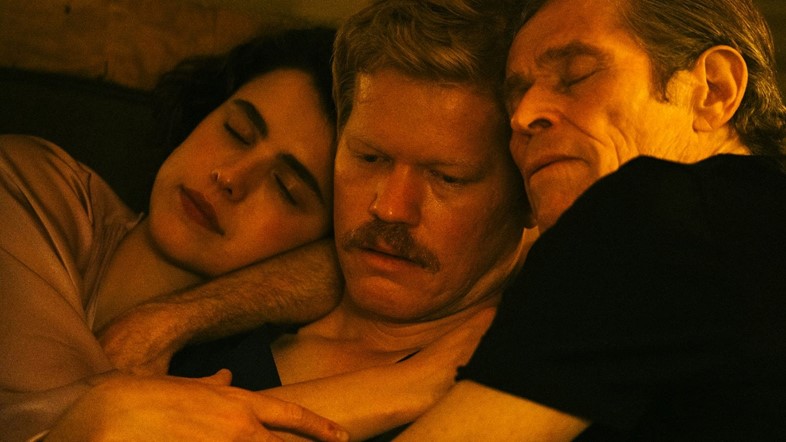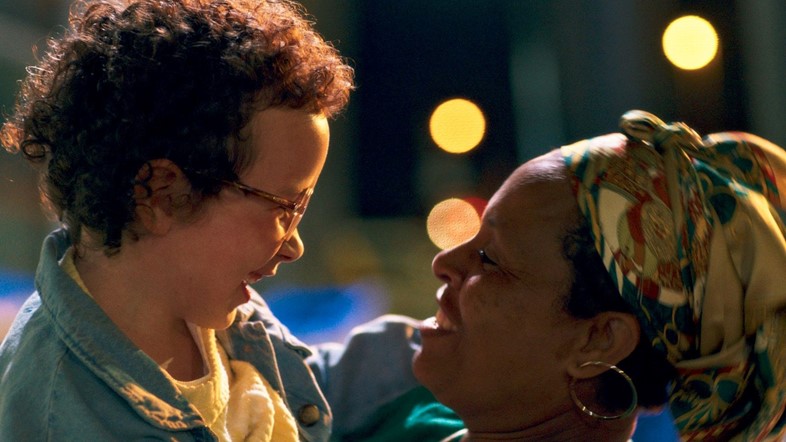From Yorgos Lanthimos’ new film starring Emma Stone, Willem Dafoe, Jesse Plemons and Margaret Qualley to an indie sad-com about PTSD with Rachel Sennott, here are the best films to see this June
I Used to Be Funny
From June 7
I Used to Be Funny is the feature debut from Canadian filmmaker Ally Pankiw, a story editor on Schitt’s Creek who also helmed the best episode from Black Mirror’s spotty last season (Joan Is Awful). The story follows Sam (Rachel Sennott, slipping back into indie sad-com mode after the hot mess of Bottoms), a 20-something comedian trying to get her life back on track in the wake of some undisclosed trauma. Gradually, through the discombobulating use of flashback, we learn that her PTSD somehow relates back to an au pairing job Sam took at the home of a young teenage girl, Brooke, who has now gone missing. It’s earnest, at times slightly on-the-nose stuff that nonetheless benefits from some excellent performances, especially Olga Petsa as angry young woman Brooke and Sennott, whose artful skewering of Gen Z tropes finds deeper registers here.

Green Border
From June 21
Filmmaker Agnieszka Holland saw her new film likened to Nazi propaganda by politicians last year, MPs in Poland’s then-ruling Law and Order party eager to wash their hands of an escalating border crisis with neighbouring Belarus in which refugees are tossed back and forth over the border “like footballs”. Her film is the result of long hours spent documenting the crisis, the casual cruelties meted out to families fleeing Syria and Afghanistan all drawn from direct testimony. It makes for a gruelling, accusatory watch, part of the drama circling a sympathetic therapist drawn into activism, but for anyone concerned about the abuses carried out in the name of border sovereignty it’s essential viewing.

Kinds of Kindness
From June 28
Yorgos Lanthimos goes back to cold-blooded basics in Kinds of Kindness, a three-hour anthology film co-written with Efthimis Filippou, his collaborator on early excursions like Dogtooth and The Lobster. Boasting an all-star cast including Emma Stone, Willem Dafoe, Jesse Plemons and Margaret Qualley, the film swaps the period finery of Poor Things for a contemporary-set “triptych fable” full of macabre episodes involving doppelgangers, death cults and worse besides. The film just premiered at Cannes, where reviews were a little cooler than you might expect (full disclosure: we haven’t yet seen it), but for those who like their Lanthimos a little more red in tooth and claw, this might be one for you.

Áma Gloria
From June 14
People that leave and feelings that don’t are the subject of Áma Gloria, the solo feature debut from Marie Amachoukeli (she co-directed Party Girl, a winner at Cannes, in 2014). Six-year-old French girl Cléo (a gorgeous performance from Louise Mauroy-Panzani) has developed an uncommonly close bond with her nanny, Gloria (Ilça Moreno), since the death of her mum from cancer. When Gloria reveals she has to leave to look after her pregnant daughter back home in Cape Verde, Cléo is distraught, so Gloria arranges for her to come and stay for a week before they must part for good. Based on her own youthful experiences with a surrogate parent figure, Amachoukeli’s fond farewell to a friend packs a whole world of yearning into its slender runtime, illuminating the child’s point of view in a story that is heartbreaking and life-affirming in equal measure.

Fancy Dance
From June 28
There’s a scene near the end of Erica Tremblay’s feature debut where Native American performers take to the stage for a dance “dedicated to missing and murdered loved ones”. It’s a shocking moment that underscores the real-life ubiquity of stories like Tremblay’s, which concerns teenager Roki (Isabel DeRoy-Olson), living with her aunt Jax (Lily Gladstone) after her mum goes missing from the reservation where they live. When her white grandpa, Frank (Shea Whigham), shows up out of the blue seeking custody of Roki, Jax takes her out on the road while secretly investigating her sister’s disappearance. Co-written with Miciana Alise, Tremblay’s film illustrates with dreadful irony the ways in which the law conspires to silence indigenous voices, and offers a terrific showcase for Gladstone, whose surly, secretly tender turn here seems drawn from the great character studies of 70s New Hollywood.
